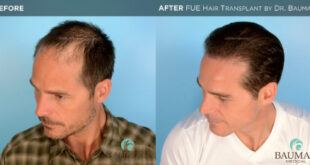by Michael Cohen
Director and Chief of Neurotechnology
Anxiety can:
Keep you from getting out or enjoying things
Tighten your chest or make breathing hard
Cause chronic worry, fear or a racing mind
Create stomach or “gut” distress
Create major sleep issues
 Medications don’t always work well
Medications don’t always work well
Anxiety and panic attacks are often treated with medications such Prozac, Zoloft, Xanax or Klonopin. The problem is that medications don’t fix the problem, they just reduce symptoms until they’re discontinued, then the symptoms come back.
Long-term use has another potential problem: side effects including nausea, nervousness/restlessness, reduced libido, drowsiness, weight gain or loss, headache, and dry mouth (depending on the medication).
Neurofeedback offers an easier way to reduce anxiety and anxiety medications
Neurofeedback is biofeedback technology that helps you calm your brain and shut off your mind. It’s like a gym for your brain and nervous system that helps you learn how to maintain calm and not be overwhelmed. It harnesses your neuroplasticity to help you change your brain pattern. Neuroplasticity is the brain’s ability to physically change itself.
You may be unaware that there are biofeedback systems and supplement combinations that can greatly speed up your ability to change your nervous system. You may believe it’s impossible to get to the point where you don’t need anxiety medication. Perhaps you’ve tried getting off your meds, and when you were unsuccessful your doctor suggested that the “failure” was “proof” that you really did need the medication. But that’s often not true.
Many of our clients are able to reduce or even eliminate their medications under the supervision of their doctor with the help of our combined approach comprised of neurofeedback, biofeedback and supplements.
Sound interesting?
Contact us today to learn more.
561-7447-616 (phone) * 561-291-9562 (text)
info@centerforbrain.com.
What will your neurofeedback training sessions do?
The brain of someone with anxiety is “stuck” in a pattern of being “over-aroused.” (It’s similar to a car that won’t downshift out of fourth gear). Using advanced biofeedback technology, neurofeedback guides the brain into becoming “unstuck” from this dysfunctional cycle. Once unstuck, the brain will be able to “shift gears” more appropriately and function in a healthier way.
Many of our clients report being calmer after just a few sessions and describe being less susceptible to mood swings after a few more sessions.
How many sessions will you need?
The number of sessions varies depending on the individual, including how long they’ve been suffering with anxiety and how many medications they’re taking. People typically notice some short-term improvement within three to five sessions. Longer-term improvements
often occur within 15-20 sessions (or sometimes more if the issues are deep-rooted or long-term).
Does neurofeedback do the same thing as medication?
In some ways, yes, but in one important way, no. Both neurofeedback and medication can regulate mood. The difference: medication doesn’t teach or change your brain. Once the medication wears off, you’re back where you started. Neurofeedback, on the other hand, teaches the brain a different way to operate. We have clients who’ve been able to reduce or eliminate anti-anxiety medications, even after being on them for 20 or 30 years.
Brain mapping
For people with long-term, or deeply embedded, issues we may recommend a brain map (which is not a requirement for training at our center). A brain map provides insight into where the problem is coming from. What “sounds like” one thing in a verbal or written questionnaire can actually be identified as something completely different when patterns of activity from the brain map are analyzed.
Benefits of a brain map
Assists in identifying problems with brain timing
Pinpoints specific areas of the brain not functioning optimally that can impact mood, behavior, attention, sleep, learning and more
Helps indicate which interventions and neurofeedback protocols to employ
Provides information that can suggest which class of medications is appropriate or not suitable to the problem. (This knowledge can help reduce prescribing by trial and error).
Helps explain why remedies tried up to that point haven’t worked
We’ll be happy to talk to you about brain mapping during your consultation.
Learn more about neurofeedback at our free informational seminar
Tuesday, Sept. 14
6–7:30 p.m.
Call 561-744-7616 for details or visit www.CenterForBrain.com
Case histories
“Nicole” had worked for years as a waitress to put herself through nursing school. When she got her dream job, it soon became a nightmare. Severe anxiety and daily panic attacks made walking into the hospital every day an exercise in courage. She worried that her mental state might impact her ability to care for her patients. A year of experimenting with different medications didn’t help. Desperate, she tried neurofeedback. After her third session she felt calm enough to discontinue her medication. After her fifth session she was panic-free with significantly less anxiety and was able to discontinue her neurofeedback training.
“Ray,” a licensed therapist, was a very wound-up man. He was hyper and anxious most of the time, though he hid it well from his clients. It was exhausting putting up this front, so he came to us for help. He also wanted to get off medication, which he had been on for years. After just one neurofeedback session he said, “I haven’t felt this calm in my whole life.” That one session didn’t solve his problem, of course. He had to do numerous sessions in order for his brain to consistently function differently, but over time his brain learned to stay calmer.
“Brett,” 24, had become so paralyzed by panic attacks that he had been unable to work or drive for two years. He was on heavy-duty mood stabilizers, an antipsychotic medication and other drugs. The medications helped somewhat but not enough for him to function. After one month of intensive neurofeedback training, his panic attacks and extreme anxiety diminished, and he was able to drive again.
Book a consultation
Wondering if neurofeedback might be the solution you’ve been seeking for your anxiety? Contact us today to book a consultation.
Why come to the Center for Brain Training?
As neurofeedback training and its effectiveness have become better-known, neurofeedback companies have sprung up around the country. While some are staffed by veteran practitioners like myself, in the field for more than 25 years, many are not. It takes a great deal of technical know-how and clinical experience to correctly customize neurofeedback training protocols for maximum benefit. We also have tools that other practitioners may not have that complement neurofeedback and can make the process work better.
When you entrust the Center for Brain Training to help you with brain-based issues such as anxiety, you’re in the hands of a recognized national expert. Call us today to find out how we may be able to help. (And don’t forget to ask us about home training options).
Michael Cohen Director and Chief of Neurotechnology
Michael Cohen is a leading expert in brain biofeedback. For over 25 years he’s worked with clients, taught courses and provided consulting to MD’s and mental health professionals around the world, helping them incorporate into their practices new biofeedback technologies for chronic pain, anxiety and mood disorders, ADHD and neurological problems.
Interested in learning more about neurofeedback?
You’ll have all your questions answered in Mike Cohen’s Amazon best-selling book
Neurofeedback 101: Rewiring the Brain for ADHD, Anxiety, Depression and Beyond (without medication)
https://amzn.to/2VbRoMS
Center for Brain
Welltower Center
550 Heritage Drive, Suite 140, Jupiter, FL 33458
Phone: 561-744-7616, Text: 561-291-9562
www.CenterforBrain.com
 South Florida Health and Wellness Magazine Health and Wellness Articles
South Florida Health and Wellness Magazine Health and Wellness Articles




